10 Hidden Adult Messages in ‘Madagascar’ Movies
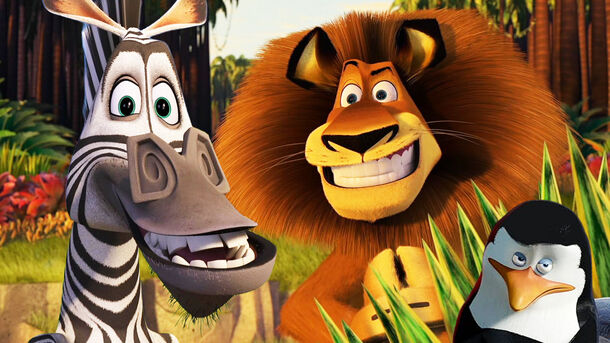
Madagascar movies series is just one of many beloved kids franchises from DreamWorks Animation, though grown-ups will also find it relatable. Here’s what you certainly didn’t think that much about while watching Madagascar as a kid.
It’s hard to imagine an animated movie being all fun and sunshine without delving at least a bit into some of the real-life problems, and the Madagascar movie franchise proves there’s just as much relevance in its storyline for adults as for kids.
Released back in 2005, Madagascar’s first movie probably remains everyone’s forever favorite instalment that paved the way for its characters’ adventures and more trouble in following films.
The trouble that the group of zoo animals faces, however, reflects on many issues modern people are dealing with even twenty years after Madagascar’s launch — here are the most relatable adult-coded messages that the franchise introduced in its plot.
Alex’s Struggle to Understand Who He Is
.jpg)
The first movie sees lion Alex starting his own exploration of his personality, reflecting on his life in the New York Zoo and how it’s different from when he’s in the wild.
Alex’s attempts to see the difference between his true nature and his public image alludes to struggles with identity and search for purpose in life that adults often deal with at a certain age.
The Group’s Trip to Madagascar Is Culturally Shocking
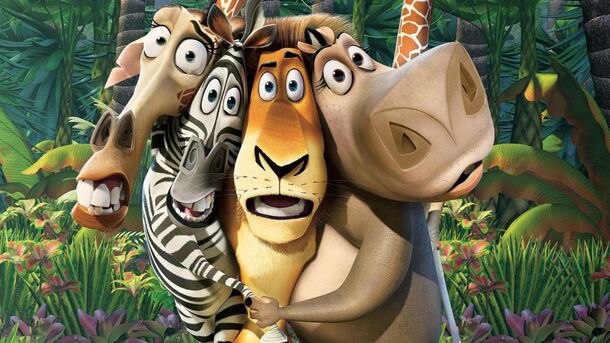
When Alex, Marty, Melman and Gloria arrive at the island by different means, all four embark on their own investigation of the new place which often leads to shocking discoveries.
This is something that people who moved abroad can relate to, as a new country can initially be seen as something weird or even savage that will require months or years to get adjusted to.
Marty Is Sick of His Work Routine
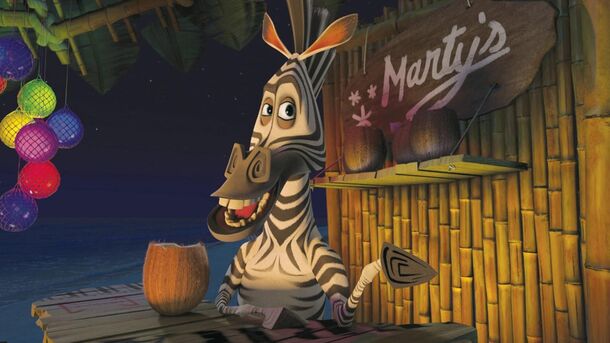
The group’s adventure kicks off right at the time when Marty decides to escape the zoo and get free from the exhaustive everyday life he had while locked up in the middle of New York City.
Marty’s act mirrors career burnout and existential dread that many adults experience on a daily basis.
Madagascar Features Romantic Relationships of All Sorts
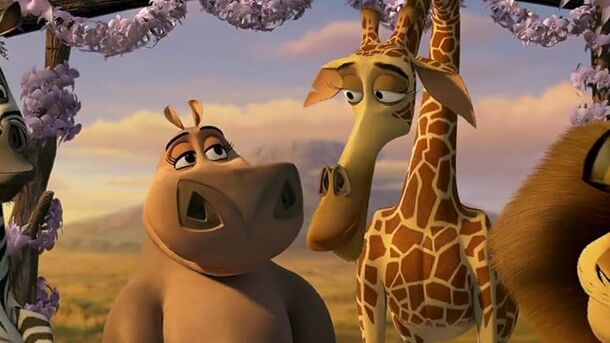
In the movies, the blossoming romance between Melman and Gloria witnesses several phases of their relationship development, passing from initial obsession with each other to showing signs of jealousy and desire for long-term commitment.
Meanwhile, Alex’s lack of interest in looking for his other half, as well as Julian’s flirting nature, reflect on the modern tendency of staying away from committing to someone else and living one’s own life to the fullest.
Melman Is a Walking Anxiety
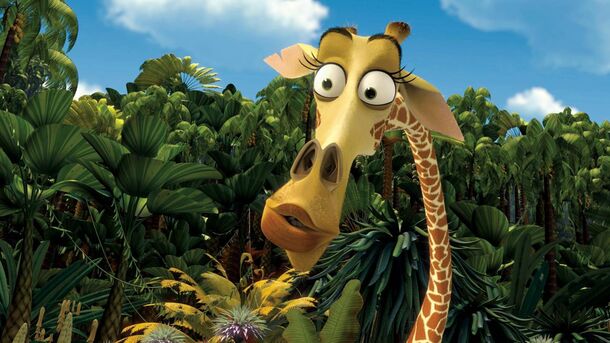
Throughout the movies’ storyline, the only thing Melman constantly thinks about is whether he’s gravely sick and will die soon, which in the second film results in his decision to look for a place for his burial.
Melman’s neurotic obsession with his health issues mirrors adults’ anxieties about aging and rapid health decline.
King Julien As a Satirical Take on World Politics
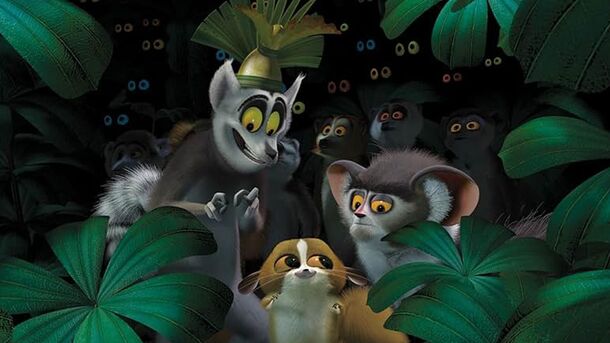
Despite his flamboyant charisma, King Julian is obviously a manipulative ruler and some sort of dictator who justifies his long-standing power abuse with a thought that there’s no other possible leader rather than him.
In the meantime, the penguins, who also escaped from the zoo, form a militarised union and terrorise everyone around with their plans to conquer the world.
Even Together, the Animals Are Still Struggling With Separation Anxiety
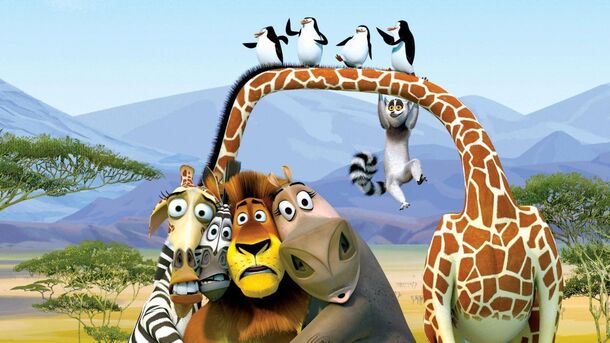
Even though some of them saw the escape as an opportunity, soon Alex, Marty, Melman and Gloria realise that they actually miss the life they had in the zoo.
This proves that, even when surrounded by friends and allies, people tend to get emotionally stressed due to the separation from their home or just comfort zone.
The Penguins Are an Image of Capitalistic World

In the movies, the four penguins are seen building their own empire after escaping from the zoo, striving to become rich and spend their life in luxury.
Their storyline reflects themes like greed and the prevail of profit over morality.
Alex Makes His Public Image His Purpose of Life
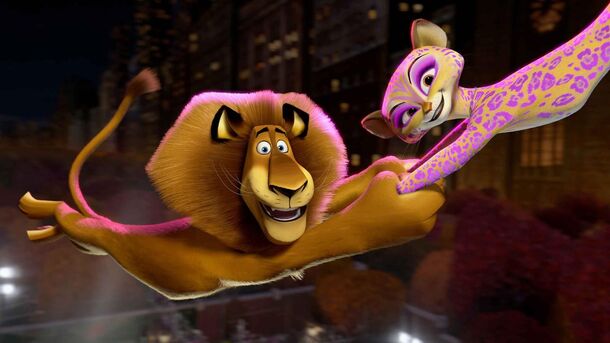
Back in the zoo, Alex is admired by the public and is considered the animal that brings the zoo the most profit by being a real New York star; however, in the wild he’s nobody and struggles with realising that his merits are forgotten.
This comes as an exploration of another adult issue which is the connection between self-worth and public reception.
What Is Your Real Family?
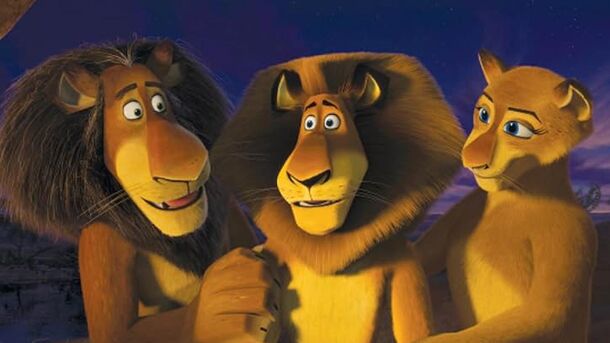
In the second movie, Alex finally finds his long-lost biological family, but struggles to fit in and adjust to their lifestyle.
This reflects on many people’s issues with their immediate families and their eventual decision to stick to the chosen family rather than blood relatives.
